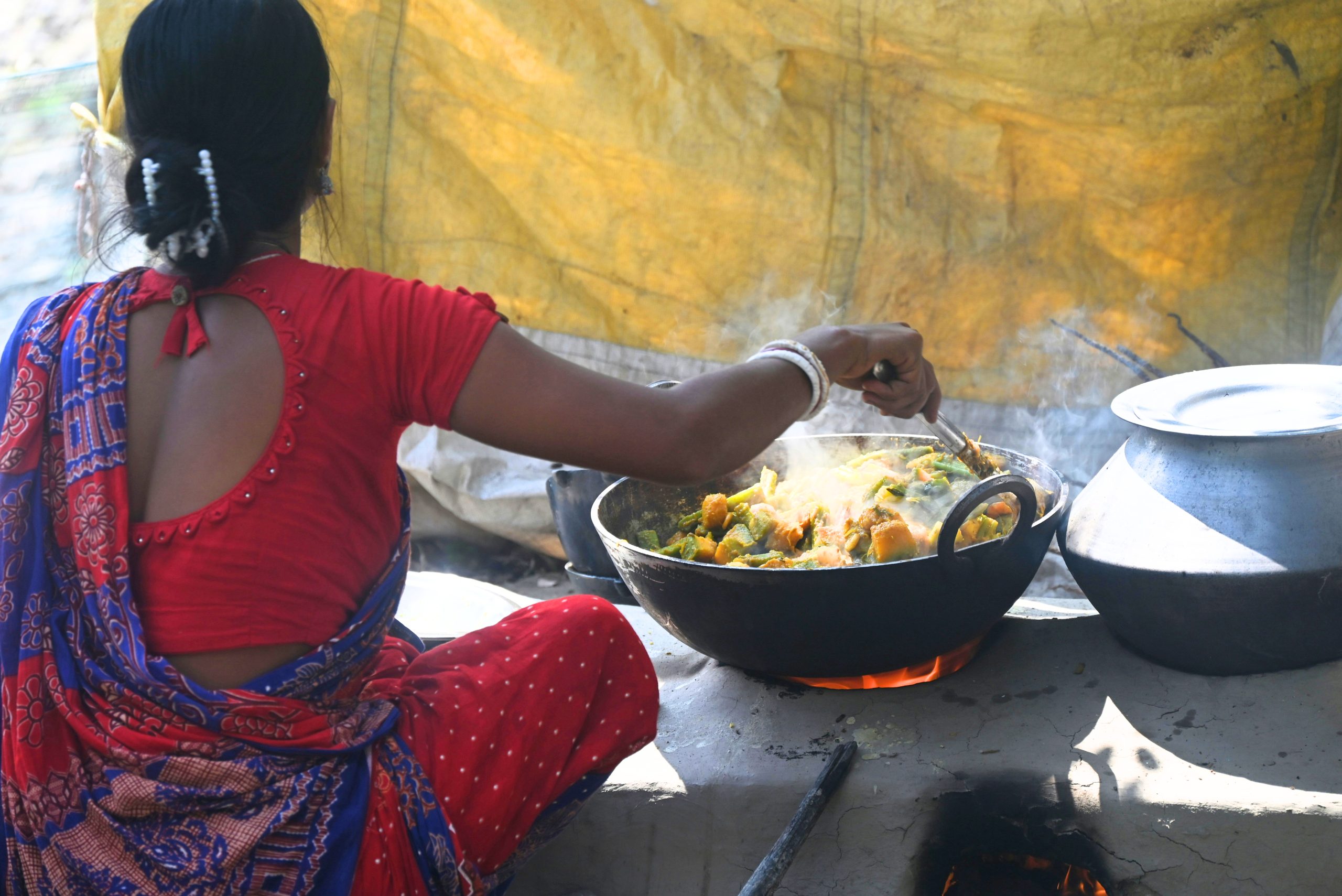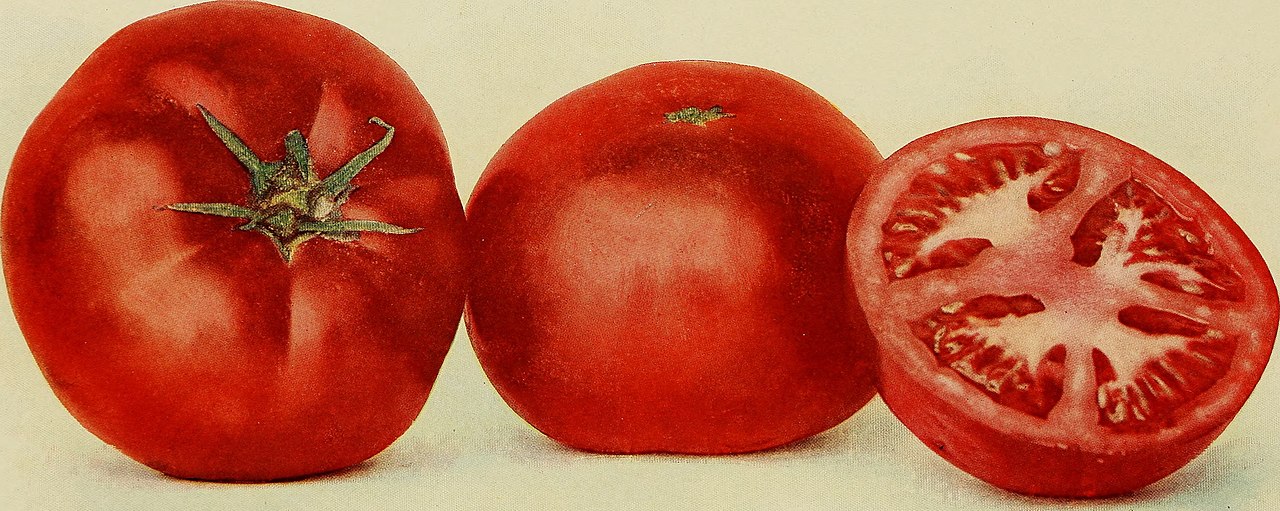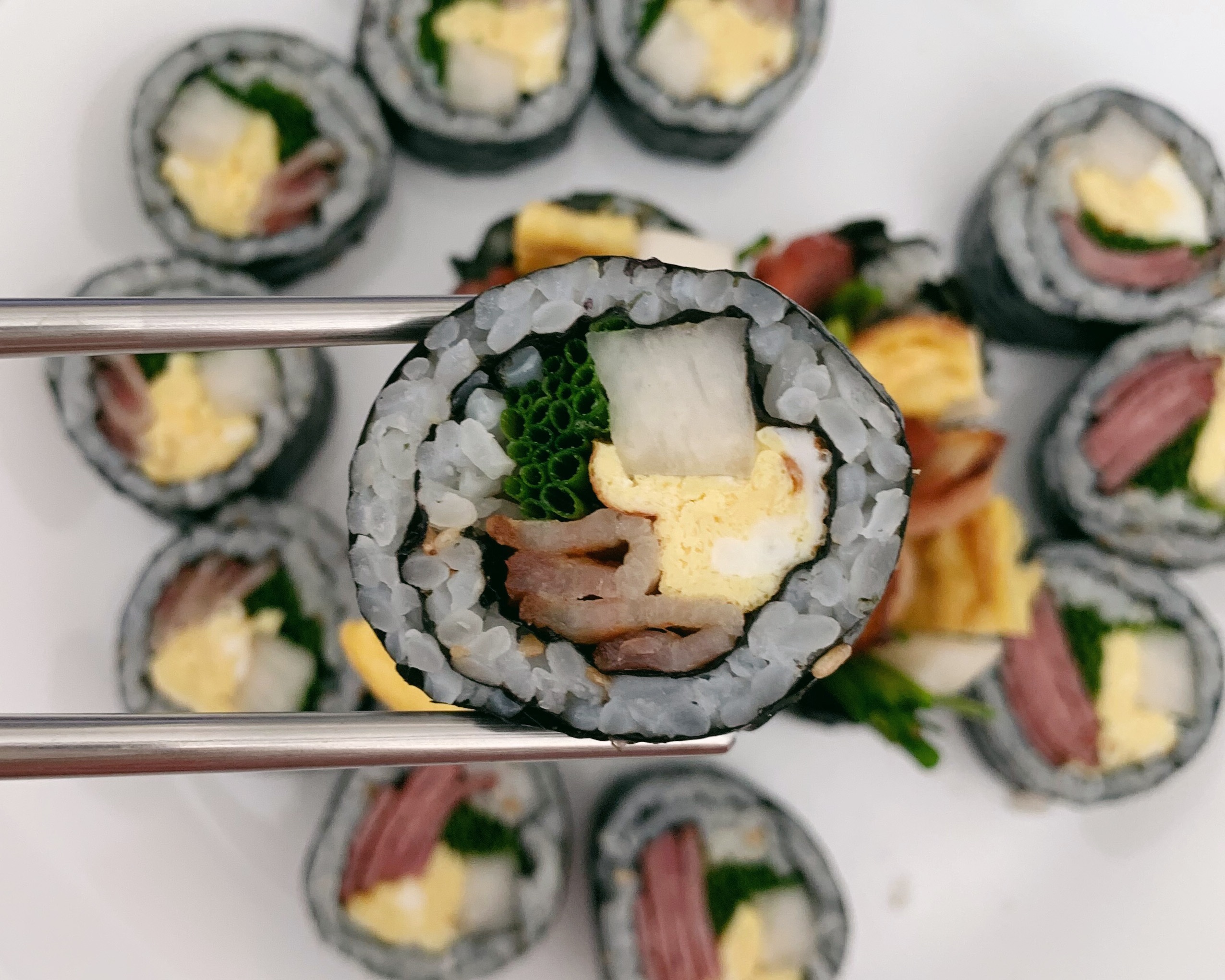Interviews
Piecing Together a Novel
Rachel Khong describes how reading Joan Didion, Renata Adler, and other women showed her that a novel could be like a puzzle

Goodbye, Vitamin is Rachel Khong’s debut novel, and it holds an impressive amount of wisdom and emotion in its slim 200 or so pages. At the risk of sounding trite, I admit that this story of thirty-year-old Ruth and her year tending to her father as he transforms with Alzheimer’s truly made me both laugh and cry. Rachel Khong has skills.
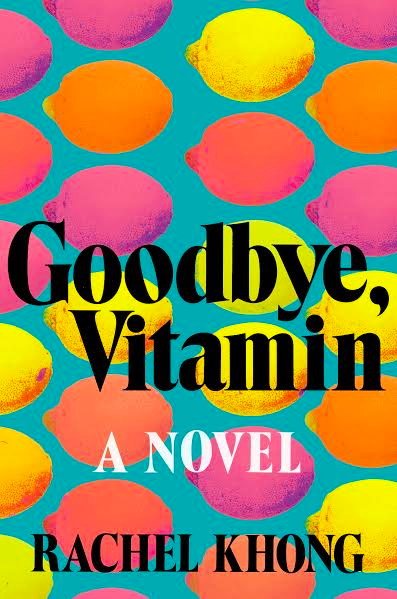
The circumstances are relatable — aging parents, bad breakups, questions about the path of one’s career and next steps — but Khong’s delicate handling of this material brings new insights on every page. Over the course of small sections that are broken up by date as the year of the novel proceeds, Khong gives space to those mysterious moments in life that just can’t be explained, but that give life its meaning. And the characters — Ruth, her parents, her friend, and the graduate students who see Ruth’s father as a mentor — are distinctive and real on the page.
Khong, who lives in California, is the former Executive Editor of Lucky Peach magazine, and I was fortunate to meet with her in person in May at a Brooklyn café. She was in town promoting the final slated book publication from Lucky Peach, All About Eggs, which is part cookbook and part essay/anecdote collection. We discussed the connection between cooking and writing, the beauty of the short novel, and the questions debut women writers get asked all too often.
Catherine LaSota: Can you tell me a little bit about your history with food and your professional relationship to writing, and how the two merged?
Rachel Khong: I’ve been writing fiction for a really long time, but not because I thought I’d make money at it. Growing up, I always wrote fiction and did something else, journalism essentially — music journalism, features and other things. Writing for Lucky Peach happened very serendipitously. I headed back to San Francisco, and they were starting this magazine and needed help, and I love cooking. It was kind of a perfect situation, and so I joined, I think, in 2011, and that was when that whole career started.
CL: Food plays a pretty prominent role in Goodbye, Vitamin.
RK: Yeah, I think it plays a big role in my book and my brain, especially because it gives form to my days.
CL: I read your piece in Grub Street, so I feel like I know a little bit about your writing days and how much you eat prosciutto.
RK: (laughs) Yeah! Ha.
CL: But you also cook a lot yourself.
RK: I do, and that was why food writing made as much sense as it did. I got into cooking more when I was in grad school, for writing — it’s just kind of enmeshed and tangled together. It’s hard to separate those two loves.
CL: Can we talk about the genesis of your idea for Goodbye, Vitamin?
RK: The form of the book is a year. It came out of a short story that I had written about a similar character, I think her name was Ruth, too — she had the same voice — and I wrote this really short story about her dating an alcoholic fisherman, and that was the seed of how the book got started. I just loved her voice and wanted to be in it. She had a different life, but she had the same voice and sense of humor, and was in the same place in life, sort of feeling out of it and not really excited by her career or just various things in her life that had not quite worked out the way she wanted them to. So that was the seed of who the Goodbye, Vitamin Ruth was.
CL: What were you reading while this book came together?
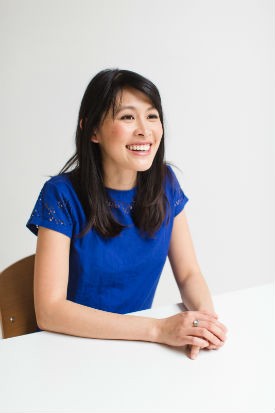
RK: I started writing the book only because I realized that novels could be possible for me after reading things like Mary Robison’s Why Did I Ever — she was my teacher in Florida, too. Also Joan Didion’s Play It as It Lays; Speedboat by Renata Adler; Sleepless Nights by Elizabeth Hardwick. I was reading these books and realized, oh, I don’t have to just write short stories — that’s all I thought I was capable of doing, and I never thought that I could write a longer thing. Reading these really small books, often by women, I realized it is possible. If this counts as a novel, I can do this, too. If I can break it down into these little pieces that I can ultimately puzzle and fit together, it seems really doable. So that’s why I started it. I don’t think I would have been brave enough to start it if I hadn’t read those books.
To know that you don’t have to have this huge, plot-heavy tome spanning generations in order to count as a novel…I don’t want to say mine is as important, but small books can be just as important. Those books I remember way more than I remember anything by, I don’t know, Jonathan Franzen (laughs).
CL: He was totally in the back of my mind as you were talking about long novels.
RK: I love the books that get at the things that matter in a way that kind of dances around talking about them directly, because it’s almost more profound that way. I think there’s a tendency to over explain or over explore things or, on the other hand, to be very opaque about it. But I love that middle ground where it’s looking at hard topics but almost distrustful of over explaining something or trying too hard to get clarity.
CL: It’s like when someone asks, well, what is this book about? The answer to that is: you have to read the book! You have to get immersed in the form of it and the language of it, and language isn’t perfect enough to explain in one paragraph what it is about — that’s why you wrote a whole book.
RK: Yeah, yeah.
CL: That being said, I did see some themes emerge that I’d like to ask you about. Memory, for example.
RK: I was really interested in memory, and Alzheimer’s came in as a way to explore that, but I was also interested in breakups, or this particular breakup she’d had, I guess, and her trying to figure out why it had happened. And thinking that it must have something to do with the separate memories that each person has in a relationship — in any relationship, really. You’re bringing your own memories to it of this other person, of who you are when you’re with them, and when those memories are incompatible, or when one person remembers one thing and another person doesn’t, how does that work? I was interested in that in romantic relationships, but also with parents and kids, because there’s a huge swath of time that you can’t remember as a child, and your parents are very much remembering that as people, and so what is that about?
CL: Near the end of the book, there is a discussion about defining ourselves in terms of who we are in relation to other people, and to me this feels like something you explore throughout Goodbye, Vitamin.
RK: That’s interesting, I hadn’t really thought of it that way. I’m always into the ways we change from person to person. I think women have to do it a lot more than men do, right? I find myself wanting to respond to the other person, or there is that thing that you have with friends, where you start to mimic what they’re doing. Or, I start to talk a certain way when I’ve hung out with a friend for too long.
CL: Do you think there’s an empathy that women in particular have?
RK: Yeah, I mean, of course, yeah.
CL: Do you feel, having written a novel, like you have become exposed in some way?
RK: Yeah, I have been dreading the whole publicity thing. I don’t know, there are so many ways to be misrepresented or say the wrong thing. That’s what I’ve been worried about. It does feel like being exposed. I’ve gotten to hide behind food or whatever journalistic subject I’ve had for years now, and now I have a book out. It’s fiction, but it’s so personal, and these are things I think about a lot, and things I’ve stolen from ex-boyfriends…
CL: I think the question of, “How much of this is you?” is something that women get asked more than men.
RK: I think it’s really true! Especially if it’s a first person novel, and if it’s a debut novel, especially, oh, this must be about you!
CL: Right. But my response to that is, every book that every writer writes has something of themselves in it. Men, too!
RK: Yeah.
CL: Some people just don’t fess up to it, and that’s bullshit.
RK: It is bullshit.
Surveillance, Satire and the Female Body
CL: But this is not a memoir; it’s fiction. And people do need to respect that line. What’s the draw of writing fiction for you?
RK: Just writing in general, I love the puzzle of it, and to make something out of essentially nothing — it’s a very cheap and free endeavor. With fiction, the puzzle is so much more fun because you have all of these things to work with. In nonfiction, if you don’t have somebody saying the right thing, or if you can’t quite get an interview out of this person, then you have to put it together a different way. Fiction can just do whatever.
CL: Is fiction about control?
RK: It’s kind of about control, I guess. But also it’s just a lot more fun. You can be more surprised with yourself. There’s a part of it that’s not control at all, that’s totally something separate from you, like that inspiration thing we were talking about. Maybe you’re writing a scene about something, and then out of nowhere the perfect conclusion to it comes, and you’re not quite sure how that happened. A big appeal of fiction is to have those moments of, oh, this puzzle is figured out, and I didn’t even quite do it myself.
CL: But you did do it yourself.
RK: Yeah, everyone should take credit for what they’ve written, but there are those moments that feel like dictation. Like, oh, this moment I didn’t overthink, didn’t overwork, is actually the better thing — I should just trash the rest of this!
CL: The age thirty shows up in different ways in your book. It’s the age that Ruth’s father was when her parents met, and it’s also the age that Ruth is herself during this story.
RK: She used to be younger, she used to be like twenty-six or something, and then I realized as I was working on it that I was kind of aghast at her. I was like, no, you are so young, this doesn’t even make sense, why are you so sad about your job? Of course you are figuring it out! Thirty is still young, but I think there is that external pressure (at age thirty), too, and I wanted her to feel that about herself. It was just less convincing to me as I was getting older myself, as I was working on the book.
CL: I find that is true with essay writing, too — over the course of time (sometimes years) you spend writing the work, your relationship to it changes, so at what point do you know it’s done?
RK: Part of it was being sick of it, right? (laughs) Part of it is needing to finish it, because I feel like a really different person than when I started it, but that’s what the book is about, too — the really different versions of ourselves we are over time. I’ve always been the kind of a person who is really good at — and this isn’t a good thing about myself — really leaving people or places behind if I’ve grown in a different direction. So I’ve lost touch with a lot of people. I have lots of close friends, but I haven’t gone back to a lot of places I’ve lived, because it’s not how I function, I guess.
CL: Does they feel like different segments of your life?
RK: Yeah, I guess it’s like segments of life, or it’s hard for me to remember what it’s like to be in college or something. It’s hard for me to reconcile all these people I used to be with the person I am now. Not that I’m so evolved, or whatever, but I think there’s a different kind of person — my husband is like this — where he views himself as just one continuous person. He can remember really well what he felt like as a boy who was really short and growing out of that and now being a normal height; he can see the person he is now in the person he was then, and vice versa. I can do that a little bit, but I wish I could do it more. I wish that my narrative was so continuous. For me, it’s like, I used to be this person, and now I’m this person, and in five years maybe I’ll be not so much like her. Like I won’t understand her problems anymore, I guess.
CL: So it sounds like you have to write another book now! The way you talk about the stages of your life makes me curious if you are really good at throwing shit away.
RK: No. I guess that’s surprising based on what I just said. But I have a lot of shit in my purse, like Ruth. And I definitely am a nostalgic person, but I wish I were more a person who could look back and say, oh, I remember that, and I see how that moment transformed me into the person I am today. I feel like I can’t grasp life in that way — it doesn’t seem that comprehensible to me. I’m just always trying to figure out shit in the moment, constantly. And learning from mistakes is its own challenge.






